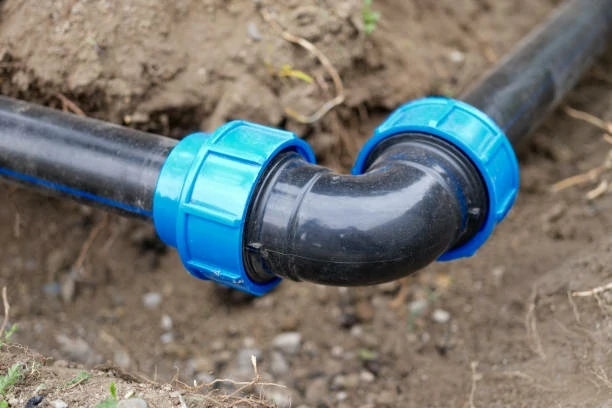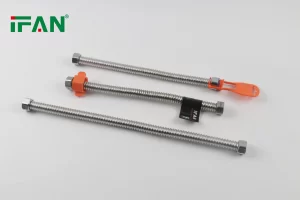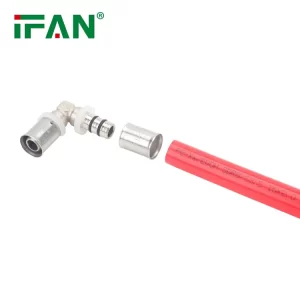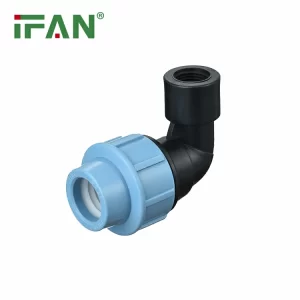HDPE (High-Density Polyethylene) tubes stand out for their exceptional abrasion resistance, making them a reliable choice in various demanding applications. The material’s ability to withstand wear and tear without degrading ensures that HDPE tubes perform consistently over time, even in harsh environments. This durability directly results from the unique properties of HDPE, which combine strength, flexibility, and resilience.
Understanding Abrasion and Its Impact
Abrasion occurs when materials experience friction, typically from contact with rough surfaces or particles. In piping systems, abrasion can lead to material loss, leaks, and eventual failure if the pipes cannot resist the constant wear. This challenge often arises in industries like mining, agriculture, and wastewater management, where pipes regularly transport abrasive materials such as slurry, sand, and chemicals.
For HDPE tubes, abrasion resistance means the ability to resist these damaging effects without significant loss of material or performance. The molecular structure of HDPE plays a crucial role in this resistance. The polymer chains in HDPE are tightly packed, providing the material with the strength needed to resist surface wear. Unlike other materials that might crack or wear down, HDPE maintains its integrity under continuous abrasion.
Advantages of HDPE’s Abrasion Resistance
HDPE tubes provide several advantages in applications where abrasion is a concern. The material’s durability reduces maintenance requirements and extends the lifespan of the piping systems. In environments where pipes must handle abrasive materials, HDPE’s resistance to wear minimizes the risk of leaks or failures, ensuring that the system operates efficiently over time.
One of the significant benefits of HDPE’s abrasion resistance lies in its ability to maintain a smooth interior surface. Even when exposed to abrasive substances, HDPE tubes resist pitting or gouging, which helps reduce friction within the pipe. Lower friction translates to less energy needed to move fluids through the system, resulting in cost savings and improved efficiency.
In the mining industry, for example, HDPE tubes transport slurries that contain a mixture of water and solid particles. These slurries are highly abrasive, and without proper abrasion resistance, pipes can quickly wear down, leading to costly downtime and repairs. HDPE’s toughness in such conditions ensures that the pipes last longer, reducing the frequency of replacements and associated costs.
Flexibility and Impact Resistance
HDPE’s abrasion resistance does not come at the cost of flexibility. The material remains flexible enough to withstand impacts and pressure changes, which are common in many industrial applications. This combination of flexibility and abrasion resistance makes HDPE tubes particularly suitable for environments where pipes must handle both mechanical stress and abrasive materials.
For example, in agricultural irrigation systems, HDPE tubes often encounter soil, rocks, and other debris that could damage less resistant materials. The flexibility of HDPE allows these tubes to bend and absorb impacts without cracking, while their abrasion resistance ensures that the material’s surface remains intact despite constant exposure to abrasive elements.
Performance in Harsh Environments
HDPE tubes excel in harsh environments where other materials might struggle. Whether used in extreme temperatures, chemically aggressive environments, or areas with high mechanical stress, HDPE maintains its abrasion resistance. This resilience makes HDPE tubes an excellent choice for applications that involve outdoor exposure, chemical transport, or contact with rough surfaces.
In wastewater management, for instance, HDPE tubes handle a wide range of abrasive materials, from sediment to corrosive chemicals. The pipes must resist both the abrasive action of the transported materials and the harsh conditions of the environment. HDPE’s ability to withstand these challenges without losing its abrasion resistance ensures the reliability and longevity of the piping system.
Similarly, in offshore applications, HDPE tubes resist the abrasive effects of saltwater, sand, and other marine elements. The tubes’ durability in such conditions ensures that they continue to function effectively, even after prolonged exposure to abrasive and corrosive substances.
Cost-Effectiveness and Longevity
The abrasion resistance of HDPE tubes contributes significantly to their cost-effectiveness. By reducing wear and tear, HDPE tubes last longer than those made from less durable materials. This longevity reduces the frequency of replacements and lowers maintenance costs, making HDPE a cost-effective solution for long-term applications.
In industrial settings, where downtime can lead to significant financial losses, the reliability of HDPE tubes becomes a critical factor. The material’s resistance to abrasion means that pipes can continue to function efficiently without frequent interruptions for maintenance or repairs. Over time, the cost savings from reduced maintenance and extended service life make HDPE an attractive option for businesses looking to optimize their operations.
The long-term performance of HDPE tubes also benefits the environment by reducing waste. Fewer replacements mean less material waste, and HDPE’s recyclability further enhances its environmental profile. By choosing HDPE, industries can achieve both economic and environmental benefits, contributing to sustainability goals while maintaining high performance.
Comparison with Other Materials
When compared to other materials, HDPE often outperforms in terms of abrasion resistance. For example, metal pipes, while strong, can suffer from corrosion and pitting, which exacerbates wear over time. Concrete pipes, though durable, are heavy and can crack under stress, leading to abrasion and eventual failure.
HDPE, on the other hand, combines the best of both worlds—lightweight yet strong, flexible yet tough. This balance makes HDPE tubes superior in applications where abrasion is a primary concern. The material’s ability to withstand harsh conditions without significant wear sets it apart from other options, providing a reliable solution for industries that demand high performance.
Best HDPE Tubes Manufacturers
| Company Name | Headquarter/Location | Year Founded |
| IFAN | ZhuJi,China | 1993 |
| Celanese Corporation | Irving, Texas, in the United States | 1921 |
| Dow | Midland, Michigan, in the United States | 1897 |
| JM Eagle | Livingston, New Jersey | 1982 |
| Cresline Plastic Pipe Co inc | Mechanicsburg, Pennsylvania, Council Bluffs, Iowa, Corsicana, Texas | 1949 |
Conclusion
HDPE tubes offer outstanding abrasion resistance, making them a top choice in industries where durability and longevity are critical. The material’s ability to resist wear from friction and abrasive materials ensures that HDPE tubes maintain their performance over time, even in challenging environments. Whether used in mining, agriculture, wastewater management, or other demanding applications, HDPE’s abrasion resistance translates into cost savings, reliability, and long-term efficiency.
By choosing HDPE tubes, industries gain a material that not only meets but often exceeds the requirements for abrasion resistance, providing a solution that stands up to the rigors of everyday use while delivering lasting value.
Connect
IFAN is a Chinese manufacturer of plastic pipes, fittings and valves with 30 years of experience. If you are interest in IFAN copper fittings, copper valves, plastic pipes and fittings, please contact us. IFAN offers you a variety of standard pipes to meet your specific needs. Click below to learn more about IFAN’s wide range of affordable and cost-effective valve products and piping system related products.
We will reply your email or fax within 24 hours.
You can call us at any time if there is any question on our production.
For more information,pls visit our webside https://ifanpro.com/
Pls Mailto: [email protected]
Whatsapp: + 86 19857948982














Recent Comments